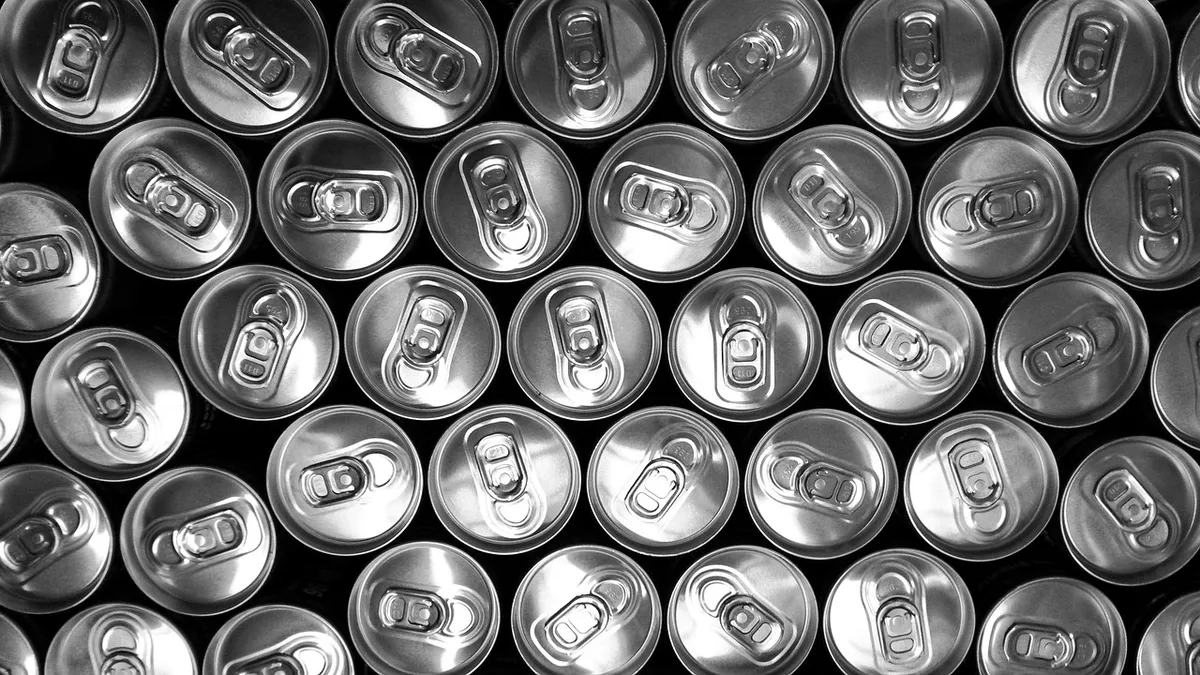Dive Brief:
- Ball Corporation is importing cans from Southeast Asia, South Korea, Africa and Central America as it works to bring more aluminum can manufacturing capacity online in North America, company executives said on a Thursday earnings call.
- Current production capacity within North America, including third-party partners, is maxed out, COO of Global Beverage Packaging Daniel Fisher said Thursday. Ball announced in September it would open an aluminum beverage packaging plant in Pittston, Pennsylvania, to serve the North American market as at-home consumption grows due to the pandemic. But that facility won't come online until mid-2021.
- Fisher said Ball will focus on using data to fine-tune existing operations and squeeze every can possible out of its supply chain. "I think we've gone to much deeper statistical models on how to run our [maintenance and repair]," Fisher said. "So, we're actually hoping to pick up a day or two in terms of less downtime heading into next year ... We're just going to continue to run all out."
Dive Insight:
The demand shock to companies dependent on aluminum cans is hard to overstate, according to Molson Coors. The pandemic brought on substantial growth in single-serving consumption of carbonated beverages.
"We sold 300 million more cans of beer in the first nine months of 2020 than we did in the same period in 2019 in the United States alone. And there have been times over the past few months when demand for tall cans was four times what it was in 2019," Molson Coors CEO Gavin Hattersley said on an earnings call last month.
Sustainability goals focused on boosting recyclability are also driving demand for aluminum packaging in beverage categories traditionally packaged in other materials.
The can shortage caused Molson Coors to put a pause on producing some SKUs, and those cuts will likely stick beyond the pandemic, Hattersley said.
For Ball, beverage can shipment volume was up 9% YoY in Q3 globally, and 6% YoY in North America.
Elevated demand has kept Ball sprinting to catch up for most of the year, and supply disruption hasn't helped. The beer industry was deemed nonessential in Mexico and faced weeks of shutdowns intended to mitigate the spread of the coronavirus. Mexico's manufacturing sector had its best month since March in October, according to IHS Markit's Mexico Manufacturing PMI, though it is still significantly below pre-pandemic levels.
Fisher said most of Ball's can imports are still making up for the backlog created by the pause in Mexico.
"We will continue to use every route available around the world ... and there will continue to be imports heading into next year," Fisher said.
The more geographically diverse supply chain takes more skill to manage, said Fisher, and has added freight cost.
"We're trying to manage a much more disconnected, much more fragmented supply chain. But our customers will be the beneficiaries of this domestic supply coming online. And we hope to get it to them sooner than we're planning right now," the COO said, adding he has some indications that customers may be moving away from just-in-time inventory management, which could help the manufacturer going forward.














